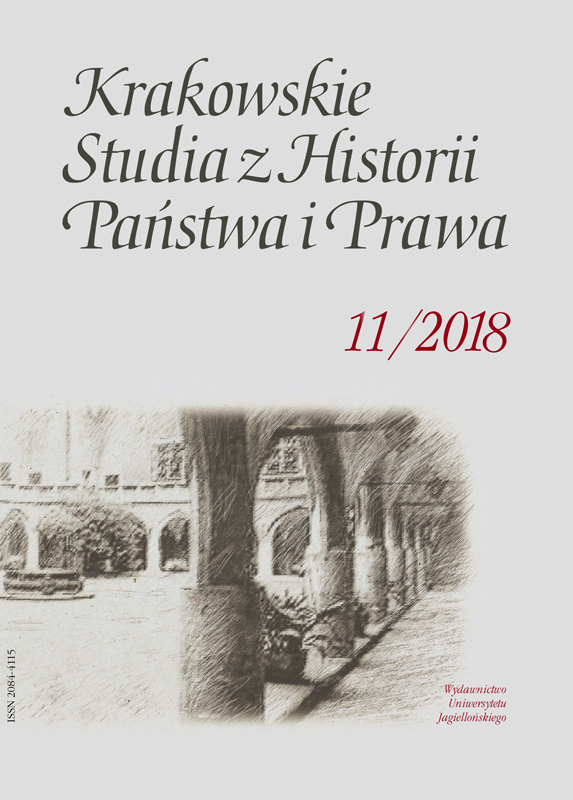Źródła poznania prawa bartnego przedrozbiorowej Rzeczypospolitej
The Fontes Cognoscendi of Honey Hunting Law in Poland-Lithuania Prior to 1795
Author(s): Kacper GórskiSubject(s): Political history, Social history, Middle Ages
Published by: Wydawnictwo Uniwersytetu Jagiellońskiego
Keywords: Kingdom of Poland; Grand Duchy of Lithuania; Polish-Lithuanian Commonwealth; Masovia; bee-keeping; honey hunting; honey hunter; honey hunters’ community; sources of law
Summary/Abstract: This article attempts to complete the previous paper concerning sources of laws governing the hunting of honey (A Survey of Sources of Honey Hunting Law in Poland Prior to 1795, “Cracow Studies of Constitutional and Legal History” 2017, vol. 10, issue 3, p. 419–466). To this end a survey of fontes cognoscendi of honey hunting law has been produced, including historical sources of normative and non-normative characters. The former category encompasses, inter alia, documents that contained either clauses concerning honey hunting or writs of mandate issued by monarchs to their officials. Legal norms regarding honey harvesting can be found in codes of customary law, general privileges and statutes issued by monarchs (e.g. Statutes of Casimir the Great, the Statute of Warta, and the Statute of Warsaw of 1401), Lithuanian Statutes, and Sejm legislation (constitutions). Special attention should be paid to domanial law, especially codes of honey hunting law containing legal norms for local honey hunters’ communities (so-called honey hunting law sensu stricto). Among them one should take note of both the code of Skrodzki (the honey hunters’ community in the Łomża captainship of 1616) and the code of Niszczycki (the honey hunters’ community in Przasnysz at the turn of 16th and 17th centuries). In researching non-normative historical sources, attention should first be drawn to honey hunters’ books of records. Their exceptional role in the study of honey hunting law should be emphasized. These books were usually handled by the officials who were responsible for registering the legal activities of the offices and courts of honey hunters’ communities. Only a few books have been edited and published (the Book of Jedlnia [1874], and the book of Nowogród [1928, partially]). Meanwhile the majority of them still exist as manuscripts and are kept in the archives (Books of Nowogród in The State Archives in Poznań; Book of the Przasnysz captainship in The National Archives in Kraków; Books of the Leżajsk captainship in The Ossolineum in Wrocław and in The Kórnik Library; and the Book of Człuchów in The State Archives in Szczecin). Other historical sources, i.e. books of records of village communities’ courts and books of referendaries’ courts as well as historical economic sources (inter alia inventories of royal domain), could only serve as auxiliary sources. Honey hunting law provides a wide range of research opportunities, especially in the field of the exercise of the law by honey hunters’ courts. The comparative study of honey hunters’ communities in Poland-Lithuania and across Europe should also be considered.
Journal: Krakowskie Studia z Historii Państwa i Prawa
- Issue Year: 11/2018
- Issue No: 2
- Page Range: 229-255
- Page Count: 27
- Language: Polish

